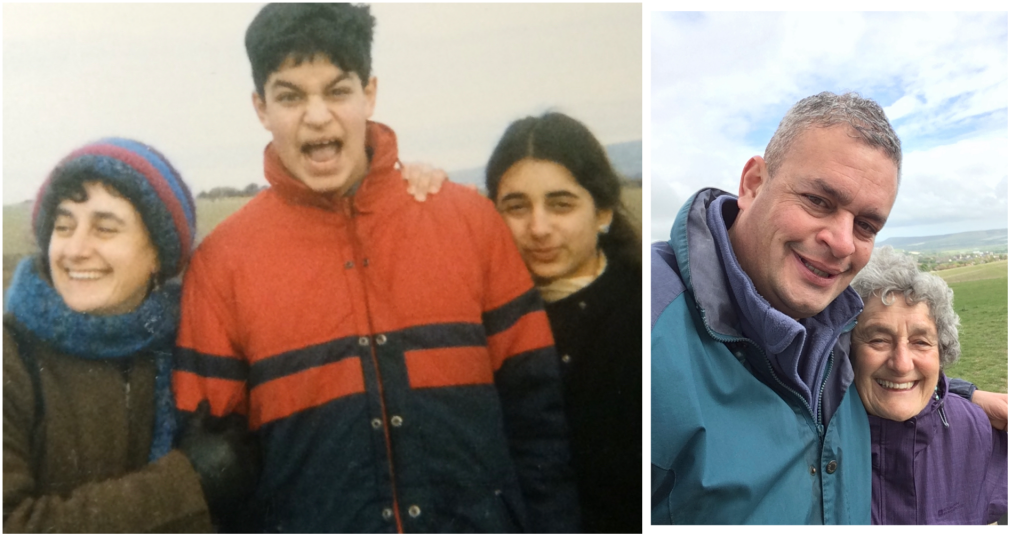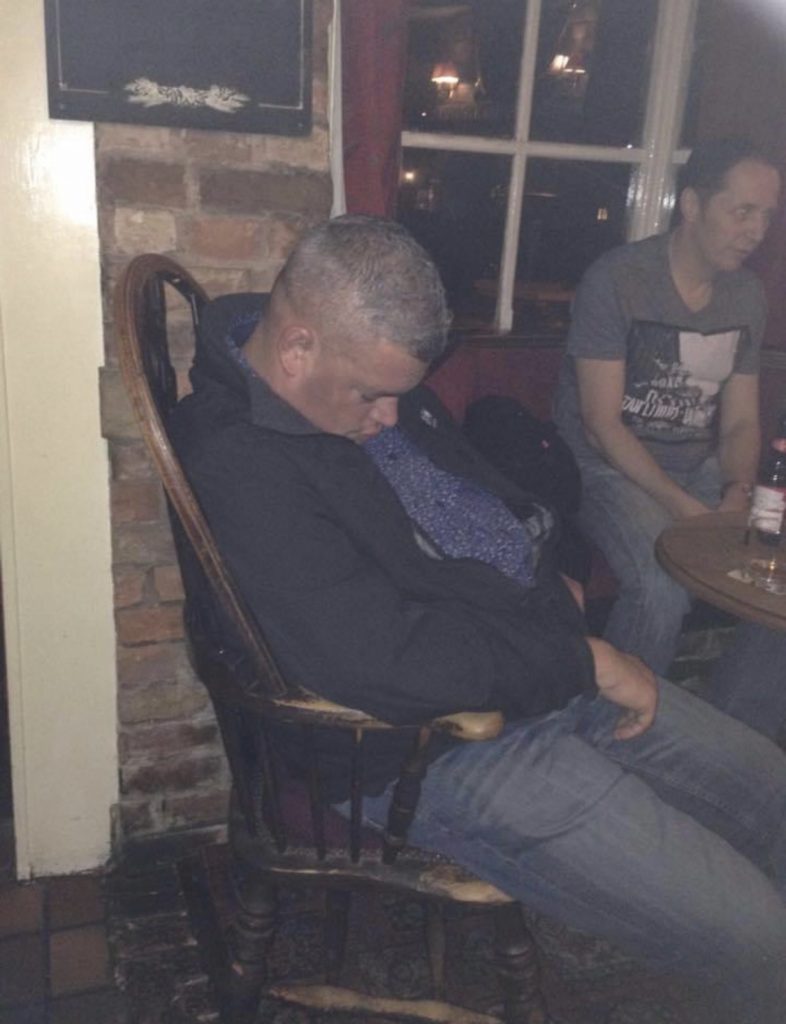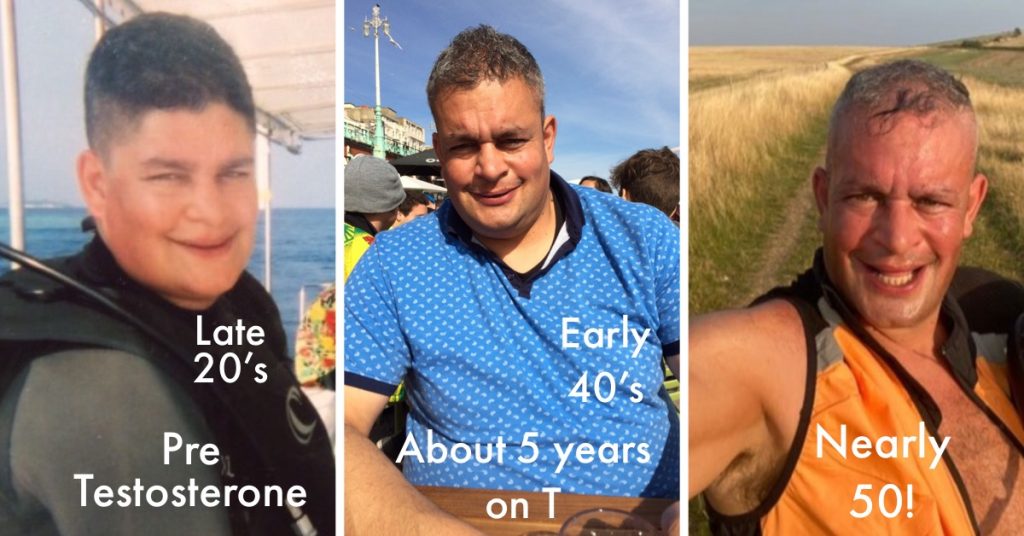

I often feel extremely sleepy around 30 minutes after eating lunch when the body goes into ‘food processing mode’ using up lots of energy behind the cognitive scenes. It wasn’t until I discussed this with my doctor that I understood why I felt so tired after eating.
When one is able to recognise ones own symptoms with knowledge of why they are happening, it becomes easier to learn how to live with them.
When patients are diagnosed with Klinefelter Syndrome they will typically have their Testosterone level tested. If it is low there may be offered Testosterone Replacement therapy (TRT which is known in short as T). T can help reduce the severity of tiredness and fatigue in Klinefelter syndrome and bring other positive benefits.
This description can be worrying for some however the presence of male breast tissue can be quite variable from unwanted bumps in the chest area to more profound tissue in the breast area.
Patients can attempt to seek a breast reduction procedure however it is not uncommon for this not to be not granted if the request is based upon cosmetic reasons alone.
Choice of clothing can help to conceal the chest area should the patient desire. This can be achieved by wearing two or more layers, shirts with breast pockets and clothing that produces some form of compression, even if simply a well-fitting vest worn underneath outer clothing.
All throughout my late teens and 20’s I longed to be able to shave or at least have some spiky stubble. Shaving took place about once per month and was always uneventful.
Nowadays, years later and since I have been taking T long term, I shave everyday and can grow thick, even stubble. Did I ever feel inadequate or less manly for not being able to grow stubble? Yes I did.
I was never really bothered about not having much body hair. The only time it become apparent was involving a fancy dress outfit. My Elvis outfit had an open front to proudly display a gold medallion against a hairy chest. Instead I wore a white T shirt with hair drawn on with a marker pen. Since taking T I now have a hairy chest plus more hair on my shoulders, abdomen and legs. Not excessive, just more.
Right up until my diagnosis during my mid 30’s I always looked much younger than my true age. In my early 30’s before my diagnosis someone at a gym class made the error of assuming that I was my ex-wife’s son! Everyone though it was hilarious, except her, particularly as she was 6 months younger than me!
The young appearance wasn’t just down to lack of facial hair, it was also a chubby, juvenile looking face. When I look back at old photos I find it hard to recognise the face of the former me!
I’m glad of the facial changes that testosterone and ageing have delivered: I now look much more like my real age although still with some traits of an appearance lower than my true years (Well, I like to think so!!!). I used to enjoy asking people to guess my age and watch their response when then quoted typically a decade lower than my actual age however these days people tend to guess much closer to my true age! I think greying of the hair is probably responsible for this.

Prior to my diagnosis I thought I had a reasonably active libido. I was however unable to relate to common phrases like ‘men think of sex several times a day’ and ‘men undress women with their eyes’.
Having received testosterone replacement therapy, my libido is now highly active. Some patients say that with T their libido can become overactive which can become frustrating if one does not have a suitable outlet.
Prior to diagnosis some patients don’t realise they have low libido. Their partners might feel undesired and for the patient this may feel threatening or frustrating to the point that they become dismissive and closed off to exploring this further. The lack of desire sometimes gets shoe boxed into something else which it isn’t, like not finding their partner attractive. This can of course lead to stressful relationships.
Men with Klinefelter Syndrome have difficulty fathering. There is a low chance of surgical sperm retrieval being successful however success rates are still very low and the process can be lengthy and resource consuming both emotionally and financially.
Many KS have happy families through donor sperm, adoption and by partnering with people that already have children. I volunteer as a patient liaison at the St Thomas hospital Klinefelter Syndrome clinic in London where fertility therapies are available for Klinefelter Syndrome men, see:
https://theklinefeltersyndromeclinic.com/treatments
I have been involved in many awareness raising activities, podcasts, interviews and articles to raise awareness of our condition and to provide support to others. For fertility see the All About Fertility website where there is a short introductory video and article: (2020)
Klinefelter’s syndrome – A personal story to support others
Men with Klinefelter Syndrome typically have testicles that are smaller than peers, however one of the problems is recognising this. Unless one has seen the testicles of another man, it can be difficult to know what is ‘normal’.
Men in same sex relationships are much more likely to be aware of the difference. Pornography is another source of knowledge to provide a meaningful comparison albeit often images are modified for effect. For some patients recognition that their testicle size is abnormal is not very obvious and therefore no further investigation is carried out in relation to this

Some might describe this as an element of immaturity however often it is much subtler with the presence less evident in visible behaviour and more in mindset and thinking.
I have no trouble remembering bank details and codes however if you ask me what I was doing a few days ago and sometimes even yesterday, I have to check my diary to be able to respond!
Some Klinefelter Syndrome are overweight, often carrying the extra weight in the midsection. Some are underweight and find gaining weight to be a major challenge. And some are a healthy weight.
For me personally I have always been active. I am a keen cyclist, open water 10k marathon swimmer and enjoy working in a physically active job. However despite all this I am overweight. I have for many years tried to eat sensibly and been active yet I still struggle immensely to lose weight.
Colleagues often remark how can I be so overweight when I am also so active!? Previously I was less cautious about diet and put on lots of weight in my early 20’s. Losing it has been an immensely difficult task which can be quite depressing. I know I am not alone; this is a common complaint for overweight men with KS.
Since taking T I have been pleased with the ability to build lean muscle mass: I now have definition in my arms and legs of steel but unfortunately my stomach is still large and I’m overweight by more than a few kilograms.

Many KS don’t ‘feel right’ in groups such as team sports (they might enjoy watching but not playing), in work groups & social settings, e.g. drinks with male friends. I can certainly relate to this. I am outgoing and sociable and I find it easy to chat to strangers and make friends. But in groups of my existing friends and acquaintances I often feel isolated and not fitting in, for example in bars.
I do tend to find it easy to form friendships with females, with many female friends. I can chat and quickly form friendships with pretty much anyone, male or female.
Many Klinefelter Syndrome enjoy and thrive in time alone. I work best alone and prefer to exercise alone although I do also enjoy rowing in an informal team where the activity is more about having fun than achieving results.
For me this is often apparent when I hear other background sounds when trying to concentrate. The above sub heading sounds almost derogatory however for me I find working in open plan environments very challenging. When I was in my final school year, one of my classmates was not very academically focussed. He was a drummer and spent a lot of time drumming the desk with his pens. I found this incredibly distracting, particularly during my maths exams!
As an adult I find it difficult to work in open plan offices and with other people around. Basic sounds like rustling paper or the incoherent mumbling from a conversation behind closed doors can feel immensely intrusive, affecting my ability to concentrate. Ironically I discovered that using headphones to drown out the external sounds and listening to fast-paced electronic dance music helps me to focus and work much more effectively.
If I attend an activity which involves reading and signing a disclaimer, I can find it hard to do so with background noises present.
Perhaps the most significant time this became an issue was when I was a mature student, studying for my masters in business administration (MBA). The university library was ironically one of the worst places to study with chattering whispers between students, rustling snack packets and shuffling of paper. My home was undergoing a major refurbishment with builders that liked to sing Britney Spears songs loudly and badly. In my garden shed I found the peace and tranquillity to be able to study and successfully complete my MBA in 3 years whilst working full time.
It was only really with hindsight that I was able to recognise that prior of receiving testosterone treatment therapy, I severely lacked assertiveness and had low self esteem.
On reflection I can recognise times in my life when I simply went along with things that in many cases I had no real appetite or desire to do. This included on one occasion a tandem paraglide which I did enjoy but had serious reservations about before finding myself being whisked up the mountain and launching off without much prior discussion.
This is commonly associated with dyspraxia and can result in stubbing toes on furniture when misjudging walking through gaps at home like past the dining room table.
Sometimes feeling like there is too much going on in the head. Difficulty getting thoughts in order and actioning things that need to be done. This could be as simple as leaving the house and delays caused by this.
Sometimes saying ‘the wrong thing’ or things that seem silly or inappropriate to others.
This can cause swollen ankles, varicose veins, sensitivity and tired achy legs. Discolouration of shins and in some cases leg ulcers or cuts/bashes that that take a very long time to heal.
KS can be susceptible to varicose veins and blood clots including unprovoked pulmonary embolism which involves blood clots in the lung. Worrying symptoms like shortness of breath and chest pain must be assessed by a suitable medical professional.
Involuntary shaking often of arms/hands to varying degrees of severity. For some this is simply an annoying shaky arm, making holding a cup of tea challenging. For others it can be far more profound and life-affecting.
Infertility is of course depressing. Some Klinefelter Syndrome are at greater risk of depression due to a range of influences including how they feel and their appearance and other factors.
Feeling like gasping for air when sleeping. Often the patient doesn’t realise they are experiencing it, it takes someone else sleeping close by to recognise the symptoms. Another sign of potential presence of sleep apnoea is feeling tired during the daytime even after supposedly a long nights sleep.
Weak, easily breakable teeth. Some KS adults have multiple missing teeth when extraction is the only solution and crowns/treatment to resolve can be expensive. Dental insurance can help to manage the cost.
This can range from being profoundly visible to being quite subtle, difficult to detect.
Some people with XXY chromosomes experiencing gender questioning, an area where not much meaningful professional support exists.
Although this does not affect me personally I am a keen advocate to find ways of better support being available to those that this does affect in some way.
The above list is not exhaustive.
People with Klinefelter Syndrome often experience different levels of emotions which can cause mood swings and seeming a bit ‘prickly’. In adults this can affect relationships with loved ones.
Whilst it can be difficult to detect this in self and then to admit this to others, if one is able to vocalise how they feel to those that are close to them this can help others to understand behaviour, make allowances and ensure that conflict is avoided.
Klinefelter Syndrome adults often say that they become emotional during sad films. Having heightened emotions isn’t all bad though; with emotions comes compassion, empathy and care for others too.
Conversely some people say that Klinefelter Syndrome lack empathy however I have seen more Klinefelter Syndrome people with good empathy than without!
In younger Klinefelter Syndrome the fragile emotions can overflow into tricky situations. I can recall that as a teenager it was not uncommon for tears to well-up in my eyes during ‘major events’. I would do anything to conceal it and to prevent my eyes from spilling over into tears.
I would also go bright red in the face for no apparent reason or if I felt particularly self conscious, for example if a girl I liked entered the room.
I recall on one occasion I was unable to get my trumpet performance right in the school brass band rehearsal and this ended in tears. Maybe tears of frustration!
I can recall that at primary school an undesireable nickname for me that was used by one individual boy was ‘Boo-boo Baksi’. At the time I didn’t really think this was abnormal, I just thought I got upset easily. I was happy when this nickname was replaced with ‘Baggy’ on account of the baggy trousers that I apparently wore!
These days I am the other way round; I seldom cry and don’t tend to get upset often. There is of course a difference between crying tears of sorrow or fear, and the tears that come from other emotional events.